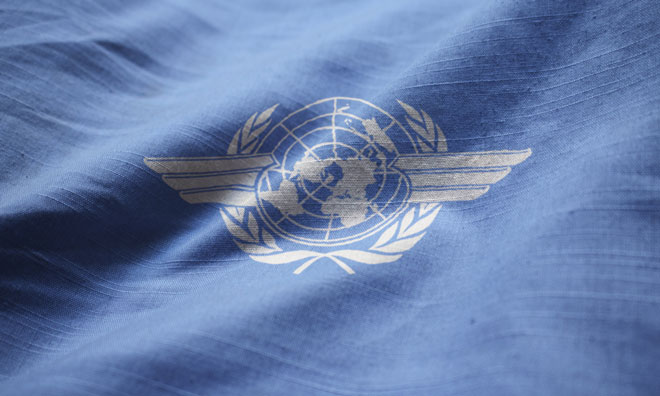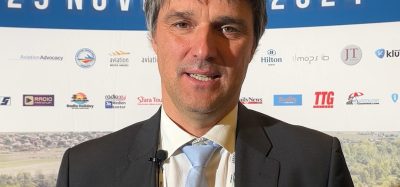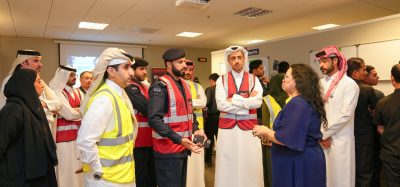ICAO addresses UN on terrorist threats to international civil aviation
- Like
- Digg
- Del
- Tumblr
- VKontakte
- Buffer
- Love This
- Odnoklassniki
- Meneame
- Blogger
- Amazon
- Yahoo Mail
- Gmail
- AOL
- Newsvine
- HackerNews
- Evernote
- MySpace
- Mail.ru
- Viadeo
- Line
- Comments
- Yummly
- SMS
- Viber
- Telegram
- Subscribe
- Skype
- Facebook Messenger
- Kakao
- LiveJournal
- Yammer
- Edgar
- Fintel
- Mix
- Instapaper
- Copy Link
Posted: 10 July 2017 | International Airport Review | No comments yet
ICAO Secretary General addresses the UN on terrorist threats to international civil aviation…


At a Special Meeting convened today by the Counter-Terrorism Committee (CTC) of the United Nations Security Council (UNSC), ICAO Secretary General Dr. Fang Liu underscored the key priorities to be addressed as the two organisations work to cooperate more effectively on mitigating terrorist threats to international civil aviation.
“Foreign terrorist fighter movements, landside attacks, threats posed by insiders and airport staff, and the use of increasingly sophisticated improvised explosive devices are all significant concerns,” Dr. Liu noted, “and our expanding reliance on information technology in all areas of aviation – from navigation to communications to security – exposes us to cyber threats.”
“We must ensure that those who can counter these threats are well prepared to take the appropriate action to deter, detect, and prevent such attacks.”
United Nations Security Council Resolution 2309 on Threats to international peace and security caused by terrorist acts: Aviation security, was unanimously adopted by the UNSC last September. It was the first to broadly address international civil aviation security and called upon States to implement effective, risk-based measures that mitigate the ever-evolving threat picture.
In her remarks to the CTC, Dr. Liu stressed that meeting the objectives of Resolution 2309 requires that States’ Aviation Security authorities have sufficient access to current threat information. She also noted that additional challenges persist regarding the sharing of threat and risk information internally in many countries, and stressed the importance of new and existing ICAO tools to help address these concerns, such as its Global Aviation Security Plan and Global Risk Context Statement.
“The Global Aviation Security Plan and Risk Context Statement, in addition to various supporting ICAO working groups, task forces and security programmes and projects, are all essential elements in addressing the security challenges,” she highlighted. “But, it is important that the highest levels of States’ governments take actions. Resources must be made available, cooperation must be increased, initiatives must be endorsed, and timelines must be met.”
The outcomes of this Special Meeting are to be presented to the UN Security Council this coming September.
On the margins of the CTC Special Meeting, Dr. Liu met the Ambassador of Egypt, Chairman of CTC, and the United Nations Security Council’s five Permanent Members missions of China, France, Russian Federation, United Kingdom and United States, as well as the Deputy Minister of Transport of the Russian Federation. During these meetings, Dr. Liu thanked their States for all their support in reinforcing ICAO’s leadership in aviation security. She highlighted the work done by ICAO in enhancing aviation security, especially the development of the Global Aviation Security Plan (GASeP). Additionally, she provided updates on Annex 17 – Security and Annex 9 – Facilitation to the Chicago Convention on Civil Aviation, which requires States to implement SARPs related to landside security, explosive detection, cybersecurity and Advance Passenger Information (API) system. The expansion of the Universal Security Audit Programme was also briefed to the Security Council representatives. Dr. Liu expressed the need for States to allocate sufficient resources at the national level, both human and financial, to effectively implement ICAO Standards on aviation security and Security Council Resolution 2309. Dr. Liu emphasised the importance that States participate in global efforts in capacity building and technical assistance activities which was echoed during the meetings.
The Representatives of France and of the United Kingdom on the Council of ICAO and senior officials from civil aviation security authorities of Canada, Israel, Russian Federation, Singapore, South Africa, United Kingdom, United States, representatives from international and regional organisations as well as industry also contributed to the success of this event through their effective participation.

















